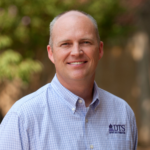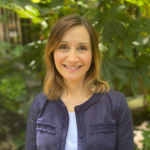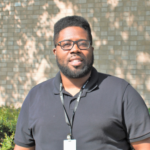Mentored Spiritual Formation helps non-residential (or extension) students fulfill their Spiritual Formation requirements. First of all, If the student anticipates moving to one of our main campuses (Dallas, Houston, or DC) at some point and will be on campus for at least one year, we recommend they enroll in the one-year residential SF5100 course. That would be of most benefit to the student because of the community context. However, if the student is planning on staying in their present location (as a non-residential student), they can apply to take SF5110.
SF5110 will allow them to engage in Spiritual Formation at their current location with the assistance of a self-chosen, same-gender mentor (SF Mentor) and guidance from a staff contact in our office (SF Guide) during two consecutive semesters (fall and spring). (Please check the Registrar’s Office webpage for registration dates.) This is not “online Spiritual Formation” but a way for the student to meet on a weekly basis, face to face with their mentor while interacting with the SF curriculum.
SF5110 FAQs
Only approved non-residential or extension students are allowed to enroll in SF5110. (This does not include “online” students who live in the DFW metroplex or surrounding areas. Such students will need to enroll in SF5100 on the Dallas campus.)
Non-residential students may begin SF5110 in the fall semester. The course will last two consecutive semesters. The student will follow the 15-week fall schedule, take off Christmas break, and begin again in the spring for 15 more weeks, after which the course will be completed. Both semesters must be completed consecutively in order to receive credit for the course.
In order to apply for SF5110, non-residential students must complete the SF5110 Mentored Application online. See Registrar’s Office webpage for exact dates.
Ideally, you would start with someone you already know and with whom you already have a spiritual friendship. (In addition, the mentor must be of the same gender.) Consider who has taken an interest in talking with you about your spiritual life and relationship with God? Who has encouraged you in this area? Who has helped you pursue Christ? Narrow the list to those who are further along in their journey with him. Typically, these persons will be older than you, but this is not always the case. Of the people you have in mind, can you think of a time when each one has shown a genuine humility and love for others, perhaps through sacrifice of time or other resources? In addition, you will be sharing your story and sin struggles with this individual, so you want to make sure that he or she is trustworthy. When you are ready to approach the person about mentoring, ask him or her to share how they have experienced God’s grace. Ask him or her to share a lesson that God has taught them through their journey. As you listen, recognize that authenticity, vulnerability, and a willingness to share out of weakness are foundational for spiritual growth in community. Finally, you will want to share with them the EML Department’s expectations to see if they are willing to make the commitment to your spiritual formation. Click here for more details.
Students meet with their SF Mentors for one hour most weeks of the semester, with holidays and student breaks off. Students spend approximately one hour per week preparing for their discussions with their mentor. For more details see “Overview”
The SF Mentor is not required to complete the course assignments. Their primary role is to meet with the student and help them reflect on and interact with the curriculum. (However, they may participate in as much as their time allows.) They do complete a final assessment on the student’s participation at the end of the course. For more details see “Overview”
Registration Deadlines
Please check the Registrar’s Office webpage for registration dates.










